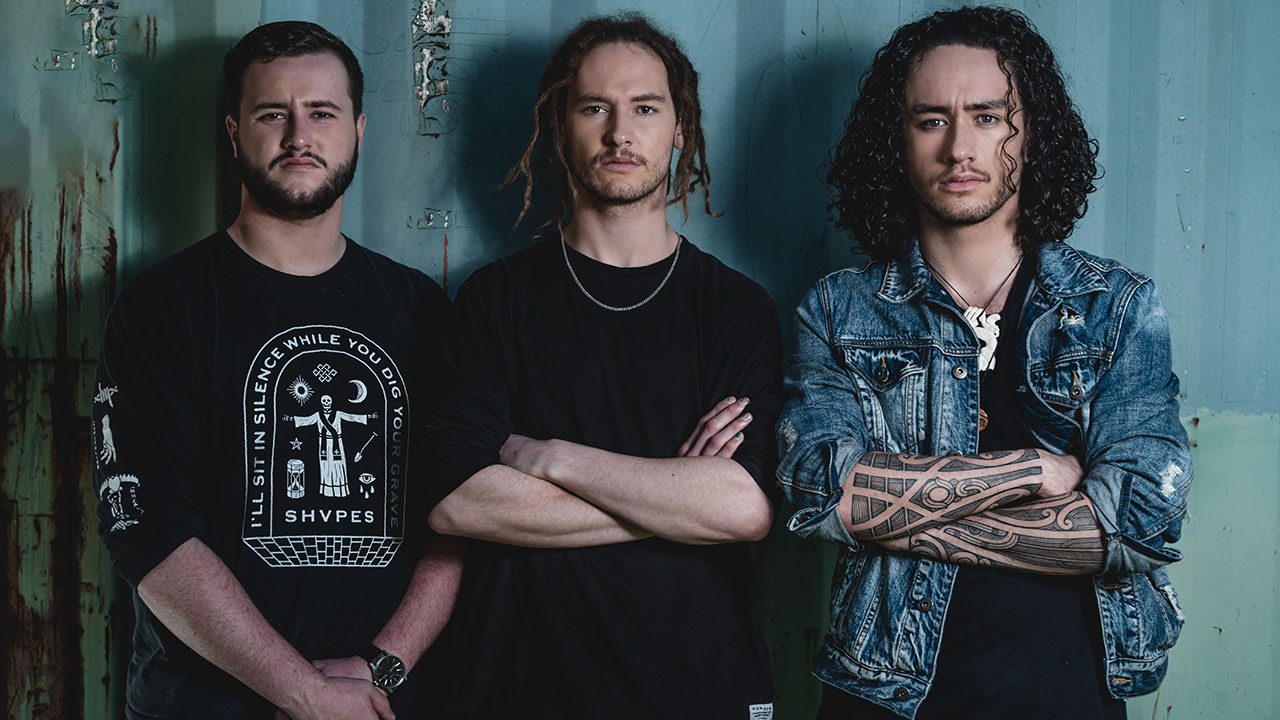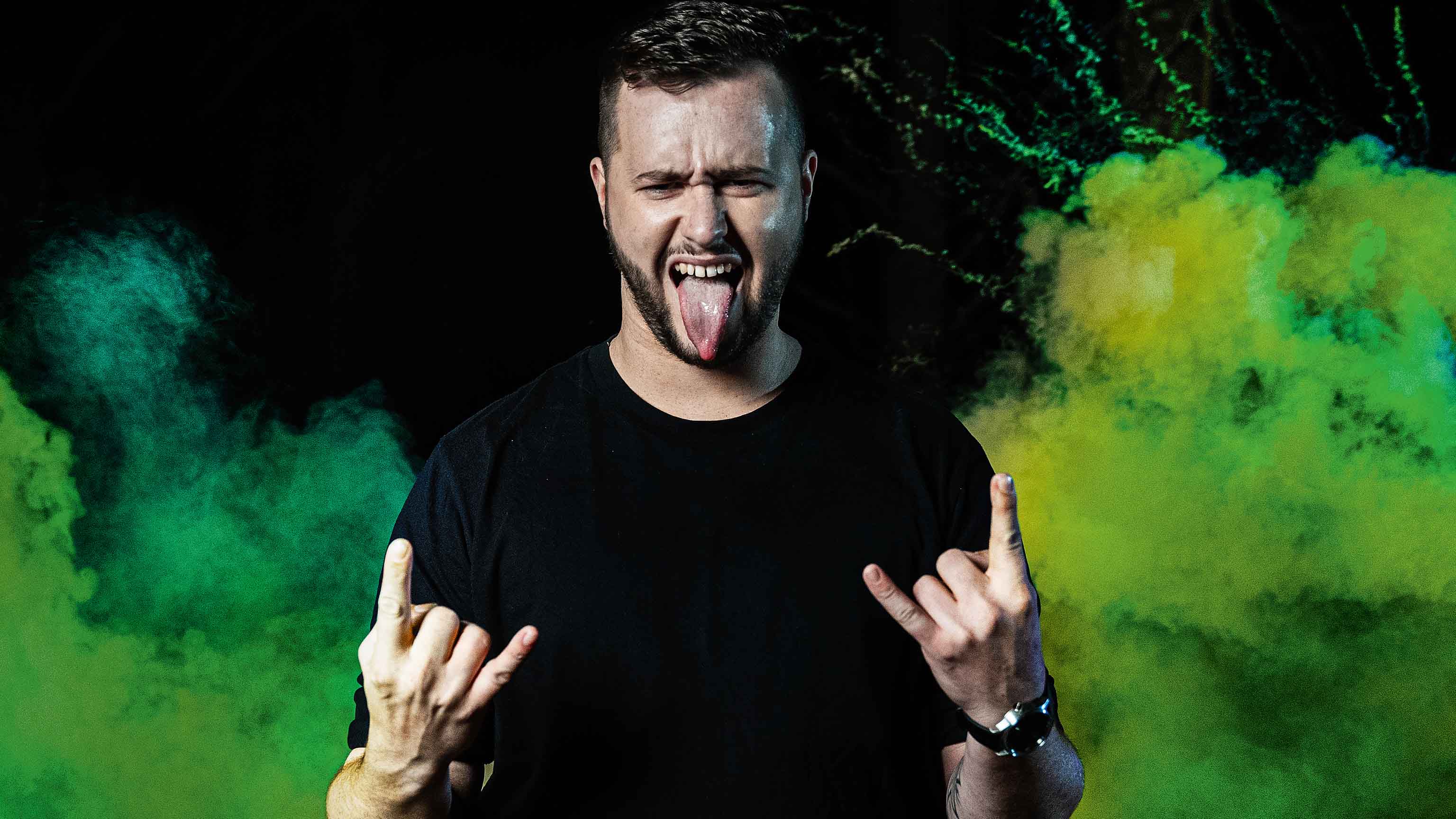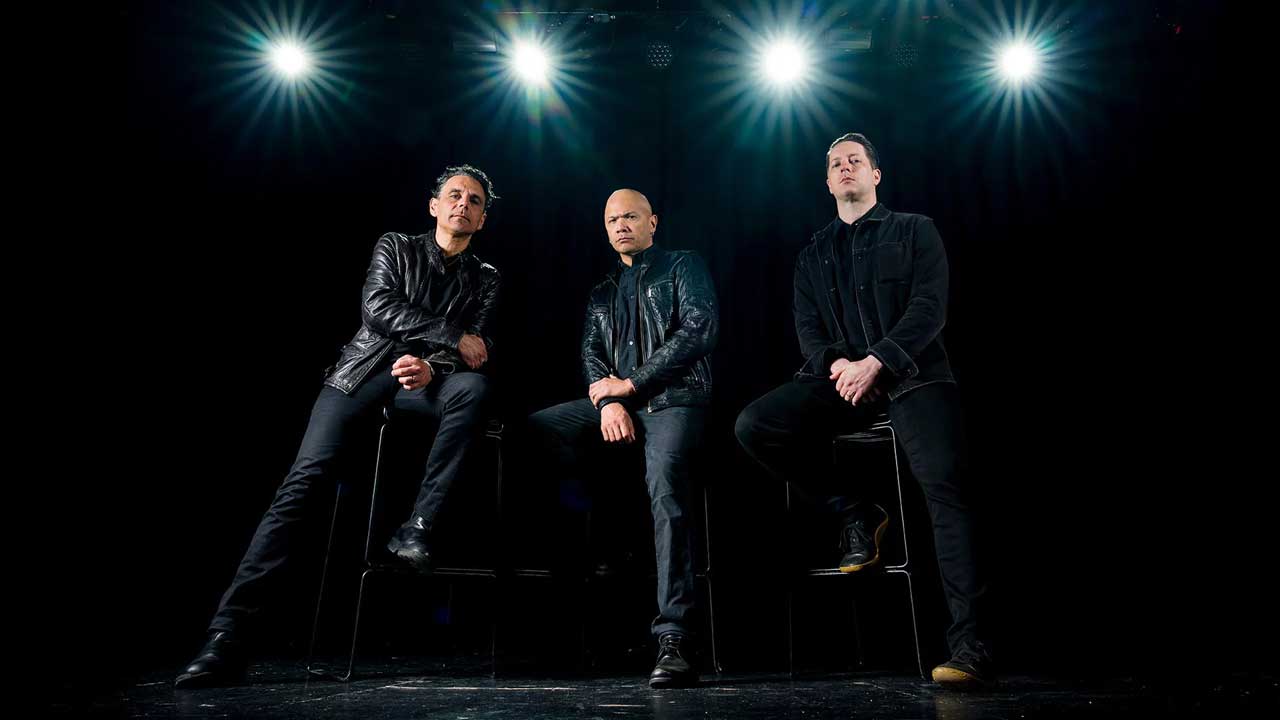Betrayal, murder, colonialism: Alien Weaponry are confronting the dark heart of New Zealand
Māori metallers Alien Weaponry reveal the horrific true tales behind their new album Tangaroa

When Metal Hammer arrives at Christchurch Town Hall, there’s a sign on the door. “Due to an injury within the band,” it reads, “tonight’s Alien Weaponry and New Zealand Symphony Orchestra show has been postponed.”
Six hours earlier, Alien Weaponry are gearing up for the second of two shows with the NZSO. Lewis de Jong, the band’s young frontman, has hired a scooter. It’s one of those things you find in cities all over the world, an app-driven, supposedly under-powered way of getting riders from A to B while making venture capitalists rich. Outside, the weather is apocalyptic and the Meteorological Service Of New Zealand have issued a Red Warning, a status reserved for only the most severe weather events.
You can probably guess what happens next. There’s a pole, and a collision, and Lewis lands on his thumb. It breaks. With more notice the show could perhaps have been reconfigured, but there’s not enough time. The decision is reluctantly taken to cancel. Eighty musicians return to their hotels, and thousands of fans go home disappointed. “I’ll definitely think about my speed in future,” says Lewis, somewhat sheepishly.

Six weeks later, Metal Hammer catches up with Lewis and his older brother, drummer Henry. The cast has just come off Lewis’s hand, and he can get back to the important business of rehearsing for Alien Weaponry’s upcoming tour with Gojira. There’s also the small business of the band’s second album, Tangaroa, to attend to. It’s an absolute beast of a record, dense with fire and fury, equal parts angst and outrage. Outrage at the industrial-scale depletion of our planet’s natural resources. Outrage at long-standing social injustice. And outrage on a more personal level, with unsettling stories of the band’s own experiences. There are stories of Māori history and colonial crimes, and there are stories of drug addiction, sexual abuse and personal chaos.
It’s also a more technically evolved collection than debut album Tū. It’s heavier, and more complex, and more surprising. Lewis’s vocal on the slow-burning Unforgiving could almost be Kurt Cobain at his most despairing. They’ve sampled The Queen. The stunning Ihenga cycles through a number of frankly monstrous riffs and ends with a haunting, hypnotic, choir-like chant sung in te reo Māori [the Māori language]. And lyrically? It. Does. Not. Fuck. About.
It’s easy to be suckered by the te reo lyrics, to view them as a tourist might, in the same way the All Blacks’ pre-game haka is known throughout the world by people who’ve probably never given much thought to the tradition’s importance in showcasing and celebrating Māori heritage and cultural identity. But dig into the lyrics of Titokowaru, or Ahi Kā, or Kai Whatu, and there’s a lot going on. A lot to make Pākehā (New Zealanders of European descent) feel a degree of deserved discomfort. Discomfort for the way the original colonists treated Māori, and discomfort that not enough is being done to reverse the damage today.
“This is a brutal one,” says Henry, when asked about Kai Whatu, a look of mischief flickering briefly across his face. “It’s about a man called Kereopa Te Rau and a missionary called Carl Völkner. He was stationed at Ōpōtiki [in the 1860s], where he had a church and did missionary work. Kereopa Te Rau and his family also lived in the area, and Kereopa’s family were actually locked inside a burning building by a bunch of colonial forces. He lost his entire family to this fire, to this army coming through and murdering a bunch of people, and he was extremely angry about it.
Sign up below to get the latest from Metal Hammer, plus exclusive special offers, direct to your inbox!
“Kereopa was part of a guerrilla group called the Pai Mārire. They were sure that Carl Völkner was a spy for the government and that area. So to enact revenge, they kidnapped him, killed him and hung him from a willow tree outside his church and cut his head off and did all sorts of things, drinking his blood and whatnot. They probably ate parts of him, too. Kereopa plucked his eyes out, and made a statement saying that one eye was for The Queen and English rule, and the other was for Parliament. It earned him the nickname ‘Kai Whatu’, which means ‘Eye Eater’. He did it a few more times as well, plucking out his enemies’ eyes and eating them as a sign of disrespect. And obviously, you know, you hear the story and it’s like, yeah, that just makes a fantastic song.”

Stories such as these may feel like remnants of another age, but their ramifications bleed down through the decades. Seven years after Völkner’s death, Kereopa Te Rau was found guilty of the murder and hanged, even though there was no direct evidence connecting him to the crime. But he was pardoned as recently as 2014, as part of a Treaty of Waitangi settlement between the British Crown and Ngāti Rangiwewehi, Kereopa’s tribe.
The Treaty is an agreement between The Crown and Māori chiefs. It’s New Zealand’s founding document, and its interpretation has long been a source of controversy and debate. While a small number of Pākehā are willing to address the uncomfortable fact that the land their families may have farmed for generations was handed to their forebears after millions of acres were confiscated from Māori in the 1860s, others, understandably, are reluctant to engage. In a nutshell, they don’t want their ‘stolen’ land ‘stolen’ back.
This relationship is addressed throughout the album, making a deep dive into Tangaroa as much a history lesson as it is an album designed to have festival audiences the world over bellowing along in te reo, however deep their understanding of the meaning is.
“It’s kind of funny,” says Henry. “Back in the day Māori were punished for speaking Māori in schools. So to be overseas in some of the countries where those settlers came to New Zealand from, and having people singing in Māori is just really awesome. And a weird juxtaposition.”
Tangaroa isn’t all eye-eating and colonial misdemeanour (although violence buffs will enjoy opener Titokowaru, the story of a great military leader who adopted ritual cannibalism as a way of terrifying his enemy). There’s also the title track, named after the god of the ocean in Māori mythology and a plea for ocean cleanliness. It was prompted by the amount of plastic washed up on New Zealand’s beaches. And then there’s Dad, which opens with the sound of a prison door closing and is sung by departed bassist Ethan Trembath. Neither Lewis nor Henry are particularly comfortable discussing the song as it’s so deeply personal - Ethan’s father was absent for much of his upbringing - but it’s a powerful leaving statement.
The de Jongs could sense Ethan drifting in another direction. He’d missed an American tour in 2018 so he could complete his school exams, and after recording the new album he announced he was leaving the band, partly to spend the kind of time with his family his father never did. “We had kind of seen it happening, over the years,” says Henry. “So it was a very gentle letdown for us.”

The other personal stories on the album are Lewis’s. Buried Underground tells the tale of a friend who finds himself institutionalised and battling psychosis after repeated cycles of drug abuse. Crooked Monsters features an enraged Lewis singing about a friend who was sexually assaulted on multiple occasions, furious that the perpetrators are free to walk around while their victim suffers the long-term consequences. Blinded is about a failed relationship (“teenage angsty stuff,” mocks older brother Henry, rather gently).
Henry is 21, the elder brother by just two years, but the differences between the two are marked. Henry seems wiser, more studious, and more comfortable, whereas Lewis (still a teenager) is a more reluctant speaker. But he bristles with excitement when talking about these songs and how much they mean to him.
Take album closer Down The Rabbit Hole. “During high school people used to basically treat me like shit and say a bunch of fucked-up shit to me,” says Lewis. “I was kind of the punching bag of the school. These days, those people are messaging me, congratulating me, wanting to be my friends, trying to jump on the bandwagon because I’m going somewhere. It’s kind of a kind of a ‘fuck you’ to them, and also kind of a ‘you made me who I am’ to them, because I probably wouldn’t have the drive I do if it wasn’t for that stuff.”
“He left school saying, ‘Fuck you guys, I’m off to tour Europe’, which I think is pretty cool,” adds Henry.
And that’s Alien Weaponry in 2021. They’re heading off on tour with Gojira in October. New bassist Tūranga Morgan-Edmonds will be playing abroad with the band for the first time. They’re hoping to reschedule that orchestra show in Christchurch (an earlier date, in Hamilton, did go ahead, with a frenzied moshpit in front of the flutes and violas). They’ve appeared as the guest band on comedian Bill Bailey’s NZ TV show Patriot Brains. And in Tangaroa they’ve made one of the finest, fiercest, albums of the year. And it’s one hell of an education.
Tangaroa is out September 17 via Napalm Records. Alien Weaponry tour the UK with Gojira next year

A Brief History Of Violence: inside the story of the Ngāti Whātua village, as told on Ahi Kā (‘Fires Of Occupation’)
The background
The Treaty of Waitangi was intended to prevent the sale of Māori land to colonial forces from European countries not associated with The Crown, but what it didn’t do was protect that land from the Crown itself. Within a century of the treaty’s signing, millions of acres of Māori land had been sold, occupied or confiscated.
The story
The land at Bastion Point in Auckland originally belonged to the Ngāti Whātua o Ōrākei tribe, but was reduced in size over the decades through purchase and annexation. In 1952, Auckland Council burned the Ngāti Whātua village at Okahu Bay, west of Bastion Point, to the ground, as the Commonwealth’s new monarch, Elizabeth II, was due to drive past and the settlement was considered “unsightly”. Inhabitants were evicted and forced to pay rent elsewhere, sending many into grinding poverty.
The song
Ahi Kā begins with a speech originally given by Ngāti Whātua chief Te Kawau, and ends with a recording of The Queen explaining how much “at home” she feels in Auckland. In between, the devastating story of the burning and eviction is told.
The aftermath
In 1976, New Zealand Prime Minister Robert Muldoon announced that the land at Bastion Point would be sold to property developers. Protesters occupied the site for 506 days before being brutally evicted by army and police, their buildings and food supplies destroyed. Just 11 years later, the New Zealand Government returned the land to Ngāti Whātua, paying $3million in compensation.

Online Editor at Louder/Classic Rock magazine since 2014. 40 years in music industry, online for 27. Also bylines for: Metal Hammer, Prog Magazine, The Word Magazine, The Guardian, The New Statesman, Saga, Music365. Former Head of Music at Xfm Radio, A&R at Fiction Records, early blogger, ex-roadie, published author. Once appeared in a Cure video dressed as a cowboy, and thinks any situation can be improved by the introduction of cats. Favourite Serbian trumpeter: Dejan Petrović.
